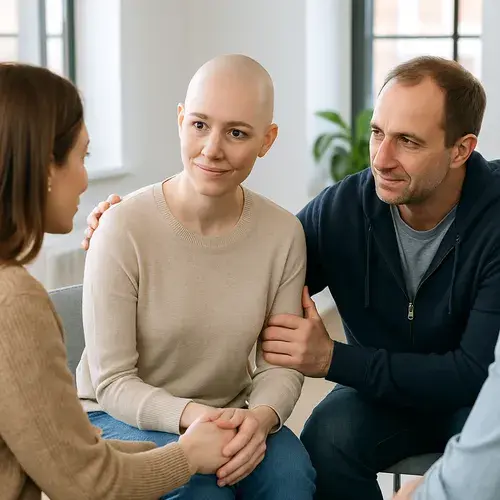Support Groups for Hair Loss Patients: Benefits of Connecting with Others Experiencing Hair Loss
Support groups for hair loss offer vital emotional support, practical coping skills, and community connection,

Hair loss can be a distressing experience, affecting not only one's physical appearance but also mental well-being. For many individuals, the emotional impact of hair loss can be just as challenging as the physical symptoms. Support groups have emerged as a vital resource for those dealing with hair loss, offering a platform where individuals can share their experiences, receive emotional support, and gain practical coping strategies. In this article, we will explore the benefits of connecting with others who are experiencing hair loss through support groups. What Are Support Groups for Hair Loss? Support groups are gatherings of individuals who share a common difficulty or condition. For those affected by hair loss, these groups provide a safe space to discuss their experiences, feelings, and challenges. Unlike professional therapy sessions, support groups are often led by individuals who have gone through similar experiences or are passionate about helping others cope with hair loss. This peer-to-peer approach can be particularly empowering as it allows participants to connect with others who truly understand their situation. How Do Support Groups Help with Hair Loss? Support groups offer several benefits that can significantly improve the quality of life for individuals dealing with hair loss: Feeling Less Alone: One of the primary advantages of support groups is the sense of community they provide. When you're surrounded by others who are going through similar struggles, you no longer feel isolated or alone. This camaraderie can be incredibly comforting and reassuring. Empowerment: Support groups help individuals find their voice and regain control over their lives. By sharing experiences and learning from others, participants can gain confidence in managing their condition. Learning Key Coping Skills: These groups often focus on teaching key hair loss coping skills such as how to tie a headscarf or which wig shops to avoid. Practical advice from peers can be invaluable in navigating the challenges of hair loss. Emotional Support: The emotional support provided within these groups is crucial for mental health. Sharing stories and receiving empathy from others who understand can significantly reduce feelings of anxiety and depression associated with hair loss. Community Building: Support groups create a sense of belonging among members. This community aspect is essential for building resilience and providing ongoing support during difficult times. Experimenting with Confidence: Some support groups encourage participants to experiment with not wearing headwear or wigs, which can help them feel more confident about their appearance despite the hair loss. Examples of Support Groups Several organizations offer support groups specifically designed for individuals dealing with hair loss conditions like alopecia areata: National Alopecia Areata Foundation (NAAF): NAAF has support groups worldwide, providing a platform for individuals to share their experiences and learn from others. These groups are available in various sizes and cater to different age groups and objectives. Simply Wigs: Simply Wigs offers information on alopecia support groups where individuals can interact with others who share similar experiences. These groups help participants cope with hair loss by providing a platform for sharing experiences and receiving practical advice. SoulUp: SoulUp provides small, confidential support groups led by therapists. These groups include weekly 75-minute online video sessions where participants can share their experiences and learn from each other in a safe environment. Conclusion Support groups for hair loss patients offer a unique blend of emotional support, practical advice, and community building that can significantly enhance one's ability to cope with the challenges of hair loss. By connecting with others who are experiencing similar difficulties, individuals can find empowerment, learn valuable coping skills, and feel less alone in their journey. Whether you're dealing with alopecia areata or another form of hair loss, joining a support group can be an invaluable step towards managing your condition and improving your overall well-being.
Need Professional Consultation?
Our professional doctors will provide detailed hair and scalp analysis and develop personalized treatment plans.
Book Consultation Now